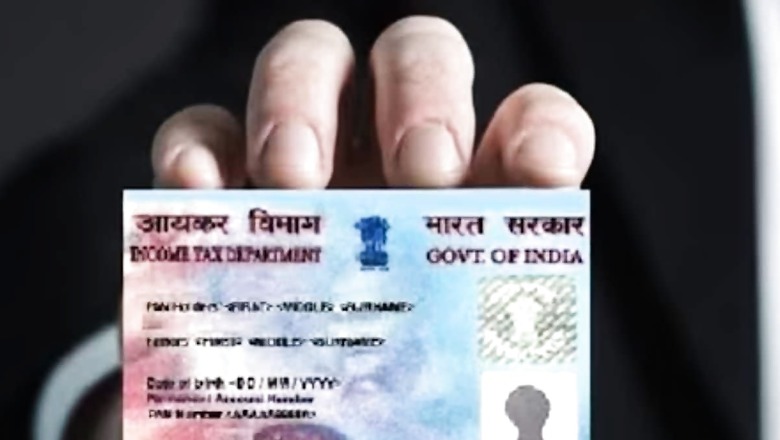
views
If you did not link your Permanent Aadhaar Number (PAN) to Aadhaar before June 30, your PAN is now considered inoperative. This means you’ll face some problems with your financial activities and taxes. For instance, you won’t be able to invest in bank fixed deposits or mutual fund schemes, file income tax returns (ITR), or receive tax refunds.
Even though your PAN is inoperative, you can still carry out certain financial transactions. However, these transactions are subject to higher tax deductions at source (TDS) and tax collection at source (TCS).
Here are some examples:
If you earn more than Rs 40,000 from bank fixed deposits or recurring deposits (Rs 50,000 for senior citizens) in a fiscal year, you’ll incur higher TDS.
Also Read: Missed PAN-Aadhaar Link Deadline? Don’t Panic! Here’s Your Next Move
Receiving dividends from companies or mutual funds exceeding Rs 5,000 in a fiscal year will also result in higher TDS.
If you sell immovable property for more than Rs 50 lakh, you’ll attract higher TDS.
Buying a car worth more than Rs 10 lakh will involve higher TCS.
Withdrawing more than Rs 50,000 from your EPF account when tax is due will lead to higher TDS.
Making rent payments to the landlord where the monthly rent exceeds Rs 50,000 will incur higher TDS.
Selling goods and services for an amount exceeding Rs 50 lakh will attract higher TDS.
If you hire someone for a contract job and pay them more than Rs 30,000 for a single contract or Rs 1 lakh in total, you’ll have to pay higher TDS.
Receiving commission or brokerage payments above Rs 15,000 will also result in higher TDS.
Suresh Surana, founder of RSM India, a business consulting firm, told ET that sections 206AA and 206CC of the Income Tax Act, 1961, have important implications. According to Surana, if you don’t provide your PAN during transactions subject to TDS, the tax deductor becomes responsible for deducting 20% of the amount as tax. This also applies if your PAN is inoperative.
Furthermore, section 206CC states that if you don’t provide your PAN or if it’s inoperative, a higher TCS is applicable. This can be twice the specified rate or 5% (whichever is higher). However, the recent Budget 2023 has set a maximum TCS rate of 20% from July 1, 2023, even if you don’t provide PAN.



















Comments
0 comment